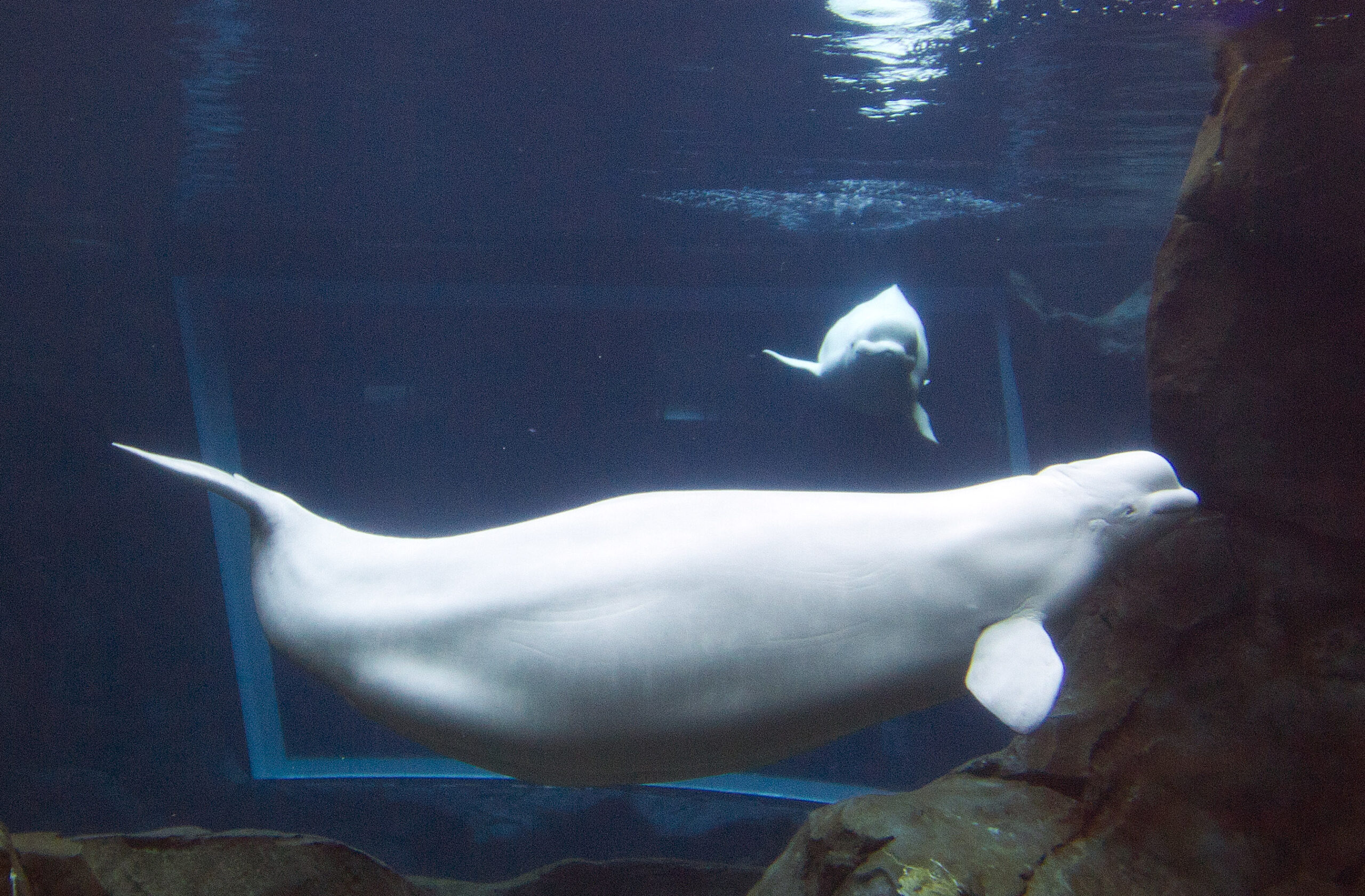The stillbirth this week of a beluga whale calf at the Georgia Aquarium could mean bad news for the entire U.S. beluga whale population in captivity.
Like us on Facebook
The third failed birth of a beluga whale at the aquarium in recent years, it’s a sign of the difficulties of breeding beluga whales in captive environments.
“It’s pretty obvious by now that the Georgia Aquarium is not a suitable environment to try to breed these animals,” said Naomi Rose, a scientist with the Animal Welfare Institute.
There are just a few dozen beluga whales in captivity in North America at facilities like the Georgia Aquarium. The National Oceanic and Atmospheric Administration counted just 31 in 2012.
Those facilities participate in cooperative breeding programs to try to grow that population, but they aren’t always successful. And all animals die. Beluga whales in captivity are no exception.
The Georgia Aquarium lost an adult beluga whale in 2015 to heart failure. Chicago’s Shedd Aquarium lost an adult beluga whale in 2016 to a “prolonged illness.”
“Because of this difficulty breeding them in captivity, the entire captive population in the U.S. has been declining,” Rose said.
Georgia Aquarium officials declined to comment on this week’s stillbirth or any beluga whale population trends. A spokesperson said the aquarium’s veterinary teams are focused on caring for the calf’s mother.
For more than a decade the Georgia Aquarium tried to import 18 wild-caught beluga whales from Russia. That effort was eventually blocked by the federal government.
The aquarium later announced it would end its efforts to obtain beluga whales from the wild except in rescue situations.









